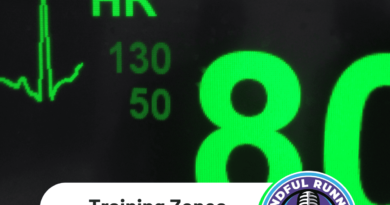The importance of sleep for athletes
In the world of athletics, where metrics like pace, distance, and heart rate are scrutinized meticulously, sleep often remains a neglected factor. The irony is that sleep plays an irreplaceable role in both physical recovery and cognitive functions—elements that can make or break your running performance. We have seen as coaches just how important quality sleep is.
The Science Behind Sleep and Running Performance
The Physiology of Sleep
Sleep isn’t just a single block of time where the body and mind shut off; it consists of multiple cycles of distinct phases. Each night, you cycle through these phases roughly 4-6 times:
- NREM Stage 1: This is the lightest stage of sleep, serving as the transition from wakefulness to sleep. It usually lasts for up to 7 minutes and is the phase where you can be easily awakened.
- NREM Stage 2: This stage represents over half of a typical night’s sleep. It is still a light form of sleep, but physiological changes like a drop in body temperature and slowing of heart rate start to occur, preparing you for deep sleep.
- NREM Stage 3: Also known as slow-wave sleep or deep sleep, this is the most restorative stage for physical recovery. Blood flow is directed away from the brain and towards the muscles, providing nourishment and aiding repair. Growth hormones are released, contributing to muscle recovery and rebuilding.
- REM Sleep: Standing for Rapid Eye Movement, this phase is vital for cognitive functions. The brain is highly active, almost akin to being awake. REM sleep is critical for memory consolidation, emotional regulation, and even creativity.
Understanding these stages helps shed light on the intricate relationship between sleep and athletic performance. Missing out on the deeper stages of sleep can seriously hamper physical recovery, while inadequate REM sleep affects your mental acuity and emotional balance—both of which are crucial for running performance.
Most wearable devices that track sleep will distinguish between light(NREM Stage 1 and NREM Stage 2), deep(NREM Stage 3), REM.
Practical Tips for Optimal Sleep
Environment
- Complete Darkness: Invest in blackout curtains to eliminate all sources of external light. This includes light emitted from electronic devices like cellphones. A completely dark environment is conducive to quality sleep and supports your circadian rhythm.
- White Noise: Consider using white noise machines to mask external sounds that may disrupt your sleep.
- Temperature: Research indicates that a room temperature of about 18-22°C (64-72°F) is optimal for sleep.
Routine
- Screen Time: Remove all sources of blue light at least an hour before bedtime. Research shows that blue light can interfere with the production of the sleep hormone melatonin.
- Silencing Devices: Remove mobile phones from the bedroom or place them on silent to minimize disturbances. Notifications can disrupt sleep cycles and reduce sleep quality.
- Consistency in Training: Maintaining a consistent daily training routine can aid in regulating your sleep patterns. When your body gets used to a uniform level of physical exertion, it can more easily transition into a restful state at night.
Implementing a consistent bedtime and wake-up schedule isn’t just beneficial; it’s backed by scientific understanding of how circadian rhythms function. Your body thrives on consistency, which results in improved sleep quality over time.
The Coaches View
Data-Driven Observations
Through the careful tracking of daily metrics, it’s evident that quality sleep directly correlates with better running performance. Metrics like pace, distance, and perceived exertion show consistent improvement when sleep is prioritized.
The “One-Night Grace Period”
Our data shows that a single night of poor sleep doesn’t significantly affect next-day performance. However, this is a cautionary observation. Neglecting sleep for 2-3 consecutive nights leads to a measurable decline in running efficiency and an increased risk of injury.
Identifying Early Signs
Decreased sleep quality or poor Heart Rate Variability (HRV) often precedes performance drops and heightened injury risk. These metrics serve as an early warning system, allowing for timely interventions.
Responsive Coaching
We adapt training plans based on sleep metrics and HRV data. If a runner is struggling with sleep, we may reduce training load or intensity to mitigate the risk of injury and fatigue.
Potential for Pre-Sleep Relaxation Techniques
Given the critical role of sleep in performance and recovery, we’re exploring the integration of pre-sleep relaxation techniques into our coaching program. Techniques like guided visualization or deep-breathing exercises could potentially enhance sleep quality, thereby elevating running performance.
The science and practice of coaching converge to underline one irrefutable point: sleep is not optional for peak running performance. It’s a critical, yet often overlooked, component that requires as much attention and planning as any training routine. Make sleep a priority, and your body and mind will thank you on the trail and the track.
These articles are written by certified coaches who apply a holistic approach rooted in scientific research. Our advice is both evidence-based and shaped by decades of practical experience in training athletes. The insights shared here are the same trusted guidelines we provide to our athletes on a daily basis.


